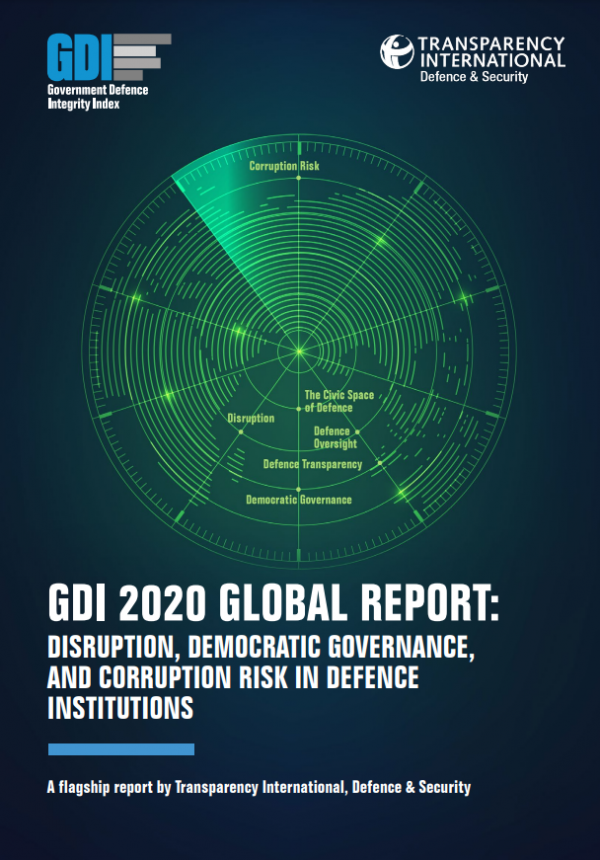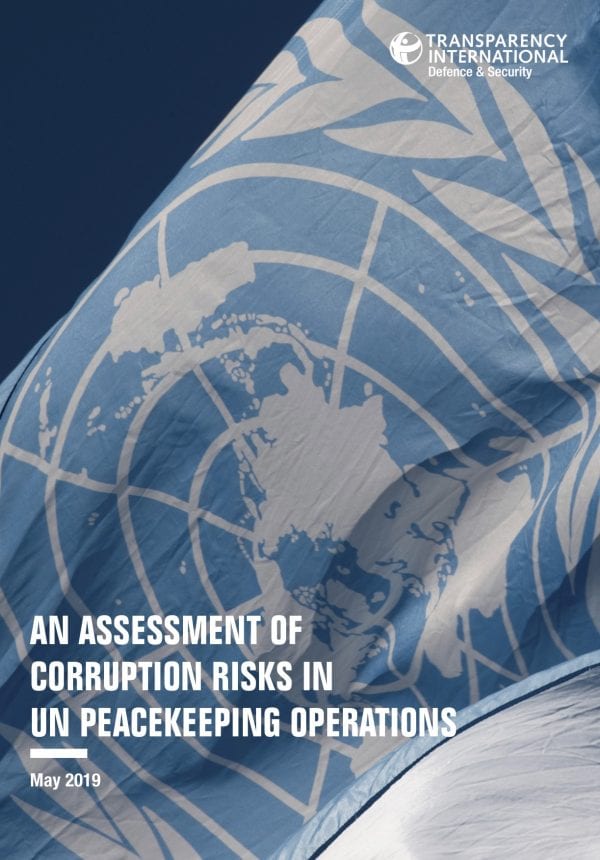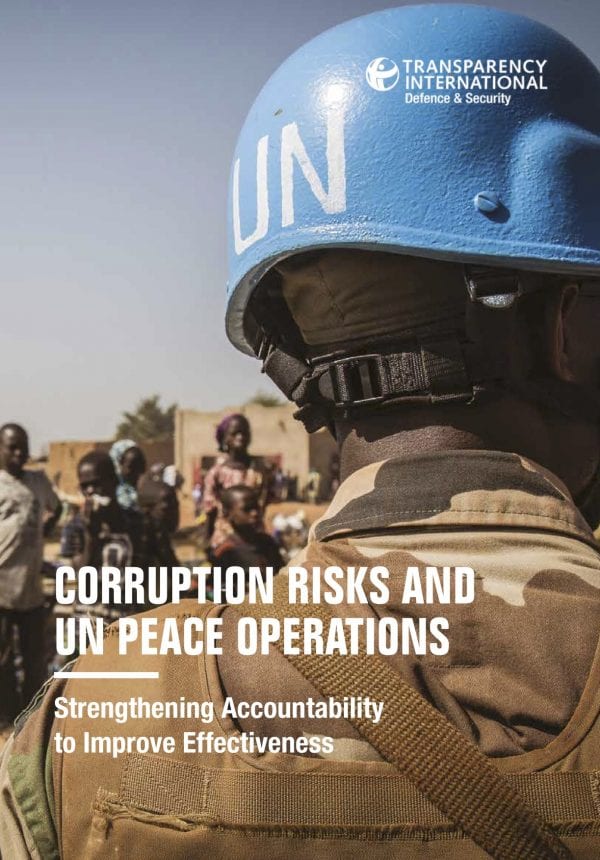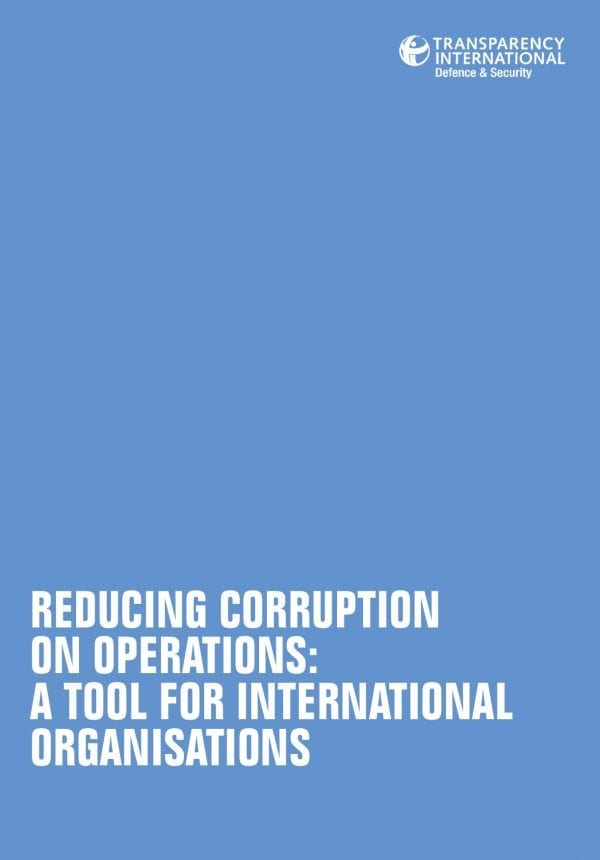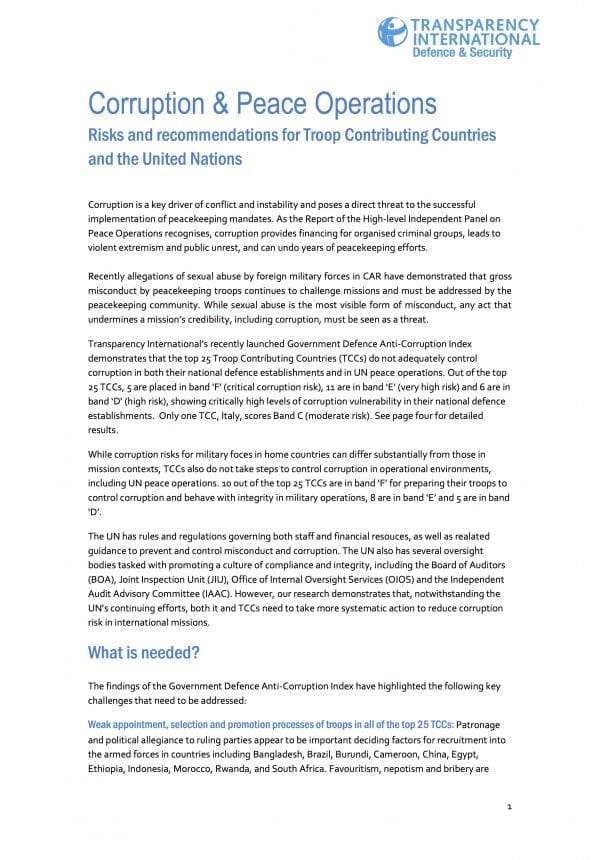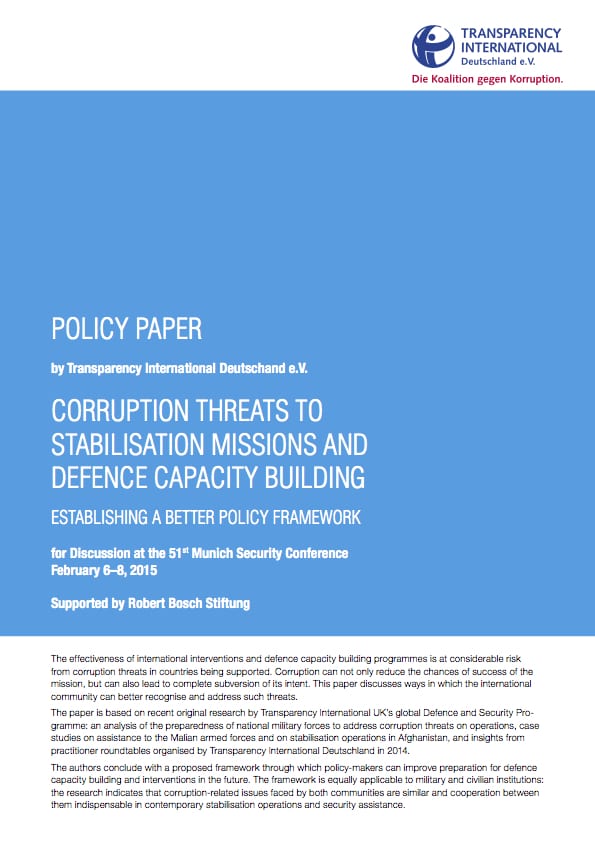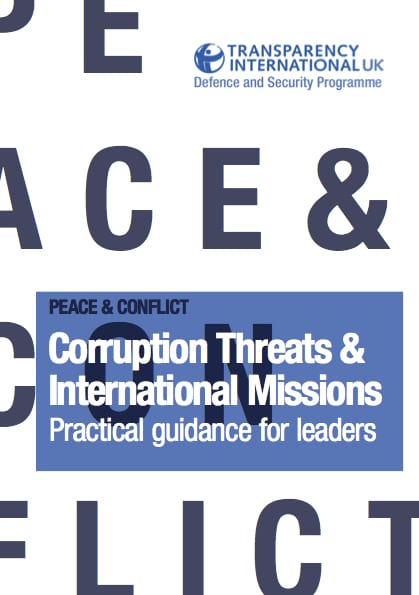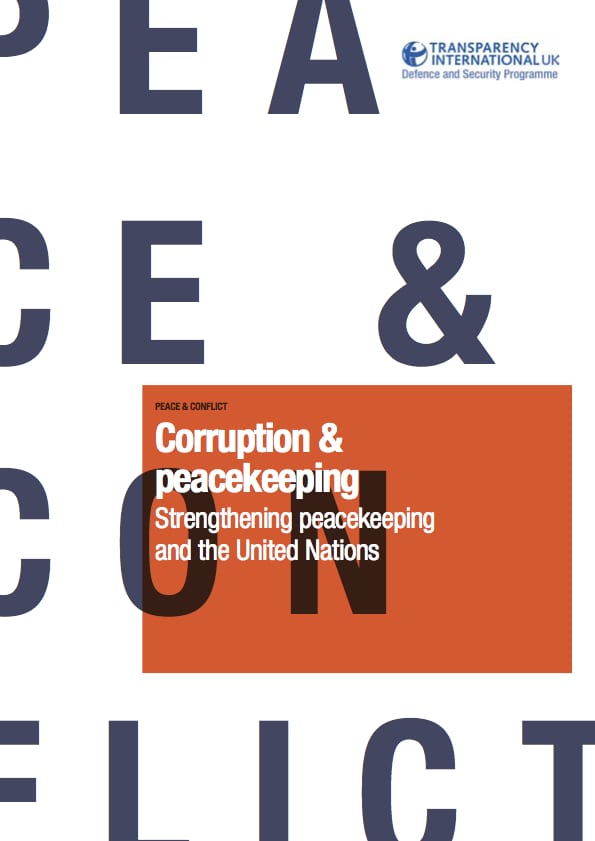An Assessment of Corruption Risks in UN Peacekeeping Operations
Since 1948, and the birth of modern peacekeeping, the United Nations has been engaged in over 70 peacekeeping (and numerous political) missions in countries experiencing violent conflict. The 14 current operations (and 11 field-based Special Political Missions) involve personnel from over 125 countries in increasingly proactive engagement, with the UN finding itself a protagonist in complex situations of ongoing violent insecurity.
Recent missions have seen increased potential for overstretch. In what are already immensely challenging contexts, corruption can undermine international efforts, reducing mission effectiveness and diminishing public trust in intervention operations. Where intervention forces lack adequate oversight and control, for example, or procurement is based on the interests of a single individual or state rather than the requirements of the organisation, the UN’s ability to respond to crises suffers. In such a complex and political organisational context, ensuring accountability and oversight is challenging. But where effective oversight of peace and military operations is in place and corruption risks are limited, the ability of the UN and its Member States to secure peace and stability significantly increases.
The Transparency International – Defence & Security has been working to understand and mitigate corruption risks in governments, defence forces, and international organisations for over a decade. Our work has confirmed that corruption is a key and important factor in conflict and insecurity settings; it can perpetuate conflict and instability, and can undermine the effectiveness and credibility of peacekeeping, peace building and other international efforts.
Download Publication as PDF